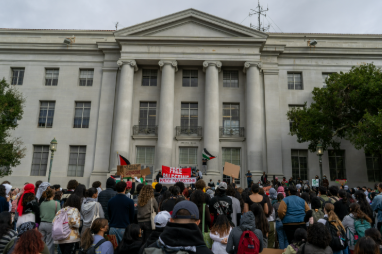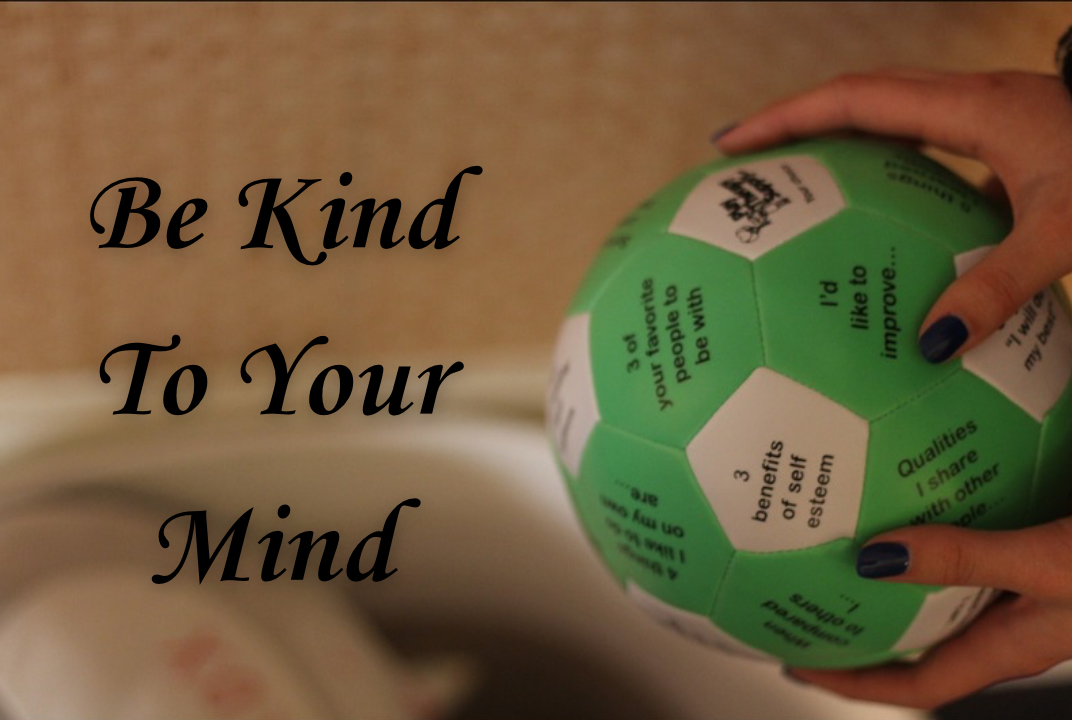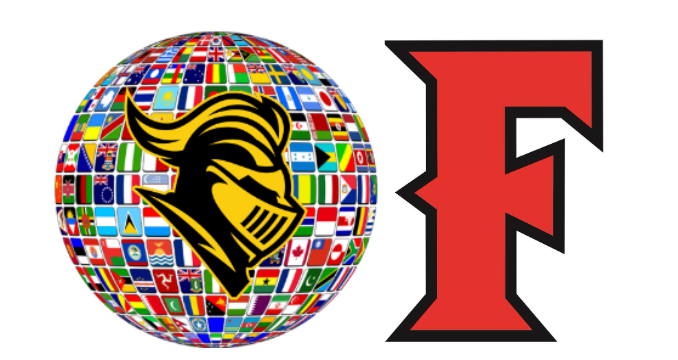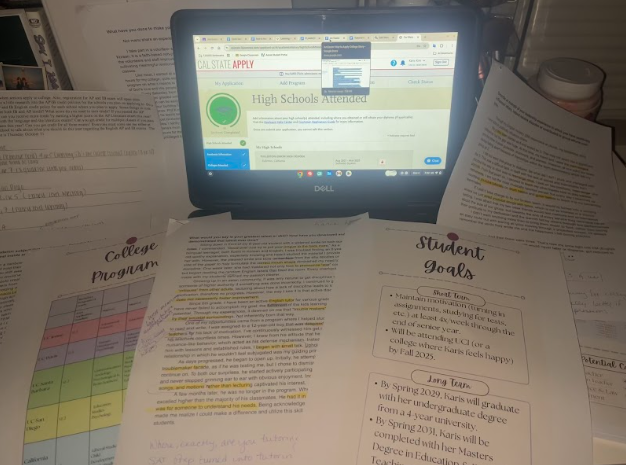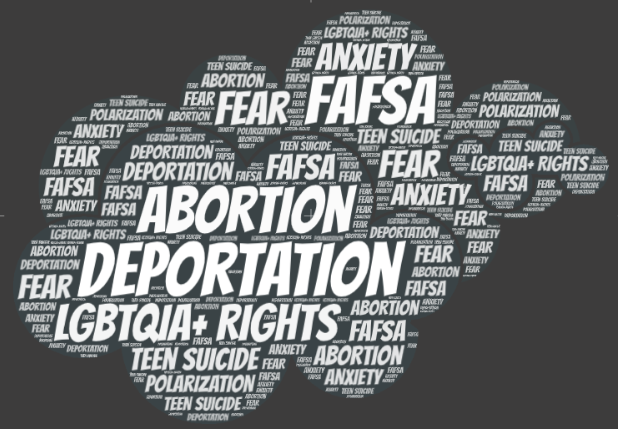Editor’s note: As editor of the Tribe Tribune, I’ve talked to multiple underclassmen who haven’t found their place on campus yet and find school to be a boring and uninspiring place. Without being a part of an activity or elective, it’s easy to see why some find no reason to look forward to school.
With freshmen and sophomores registering for classes in the coming weeks, I want to celebrate some of the diverse and exciting programs this campus offers to students of all grade levels.
Unfortunately, we do not have the space to feature all programs equally, but we have provided links to previous Tribe Tribune stories exploring each program for those curious to learn more. If you enjoy the stories below or want to learn more about the reporting process, consider signing up for journalism.
After two years of reporting, I’ve seen what this school has to offer firsthand. I’ve talked to the people who build these programs and give others goals to strive for. In writing this, I want to help those lacking the motivation to come to school find their passion, as I’ve found mine. I’ll start with a short reflection on one of the first activities that made me look forward to school.
Band
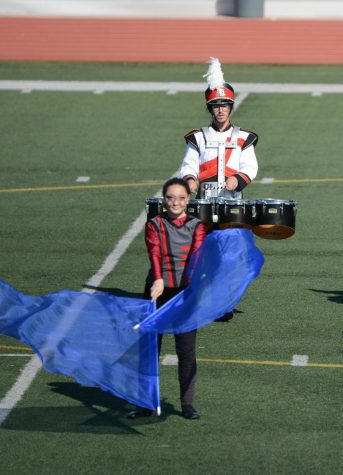
Open case. Pick up mouthpiece. Connect bell, tighten screws. Adjust bell position. Remove pads, attach mouthpiece. Quick warm up, tune, then perform. After four years, this process is natural for me. And after my graduation, I’ll likely never pick up the Sousaphone for the band again.
Signups for next year’s classes are around the corner, and I want you to consider picking up an instrument and joining Band. If you played in elementary or middle school or have never touched an instrument in your life, the music programs can give you an opportunity to learn something new.
With the new Beginning Band class starting next year, no prior music experience is needed to sign up. For those who are more practiced, Marching Band offers PE credit on top of a unique and challenging activity.
Marching Band is the face of the school. Everyone hears us at football games. Everyone hears us at graduation. Our performance is a direct reflection of the success of the school.
Going in I knew I wasn’t going to be a professional musician after high school. I wasn’t going into an advanced university band or internationally-recognized drum corps. High school was my first and likely last time on the field.
But that’s okay. I played for the band because I wanted to grow as a person and a musician, not because I wanted it to be my career.
As I watched my friends march and play at games, parades, and competitions throughout the year, I realized I had come a long way from my first days of practice.
People clapping and cheering. Parents, students, and teachers leaving words of support and encouragement. It’s a feeling of satisfaction and accomplishment that I’ll never forget. It makes all the wrong notes, strain, and stress worth it in the end.
When I started playing music my freshman year, I had never marched and played at the same time in my life. I never realized that was something I could do.
But that’s what the band did for me. It reshaped my perspective on what I could learn. It was more than practicing the music or figuring out the drill — more than the instrument itself. It was about the unforgettable friends and lifelong memories I’ll carry with me forever.
Further information on Band can be found here (competition) and here (student feature).
Editor’s note: The following reflection was written by color guard member and Tribe Tribune reporter Sydney Rosas.
Color Guard
When you ask anyone what makes up a marching band, they might note the colorful uniforms, the instruments, the countless hours of rehearsals, the organization of marching around on a field. But they’re all missing a key part of the marching band. You aren’t in Band just to play music. You’re there to perform.
Color guard is the performance aspect of Marching Band. Instead of instruments, we are given a flag and some dance moves, and it’s our job to transform the show into something lively and colorful.
If you aren’t involved in anything, maybe it’s time to try something out. Something new. Something that you would have never seen yourself doing a year ago. Something fun.
Guard isn’t just another extracurricular for me anymore — it’s a family. It’s a place for me to go when I feel like I don’t have anywhere else, and it’s where I can go when I need to feel supported.
We’re accepting everyone, no matter what. If you’re looking for a place to belong, you should consider joining.
Sign ups for the 2022 marching band season are open now. Sign up with your counselor and talk to Mr. Trimble in Room 80 for more information about joining. Your flag is waiting!
Editor’s note: The following introduction to ethnic studies was written by Tribe Tribune editor Alia Noll.
Ethnic Studies Class
In October, California governor Gavin Newsom signed Assembly Bill 101, making California the first state to require ethnic studies at the high school level.
Mrs. Sharon Hollon, who currently teaches AP Human Geography and World History, was hired over the summer to discuss an ethnic studies pilot course with teachers from across the district.
While Newsom’s mandate won’t go into effect until 2026, Hollon noticed a community interest in bringing an ethnic studies course to the district.
“American history tells a story of the people who were the victors, the people who were the scholars, the people who wrote the books,” Hollon said. “And some of the other groups who were smaller or had less access, their stories were not told, or not told as completely. Ethnic studies is the attempt to make a more inclusive perspective on what many Americans have experienced.”
The committee followed a model curriculum set by the California Board of Education, which suggests that the course focus on four ethnic groups: African American, Asian American and Pacific Islander, Latin American, and Native American. The framework for the course was presented to the school board in October.
Senior Frances Walton took an ethnic studies course called Contemporary Social Justice Movements at Fullerton College during her sophomore year.
“The point of history is to use historical events to understand how the world works and how to learn from mistakes,” said Walton, who plans to study anthropology and history in college. “When you take an ethnic studies course, it completely broadens your worldview to not just Eurocentric history, but history literally everywhere else. I feel like that’s really important because the way you view history can change your actions and thoughts.”
Contemporary Social Justice Movements also highlighted the intersectionality of more recent activists.
“We learned about Marsha P. Johnson, who was a trans and Black activist and was largely unrecognized until recently,” Walton said. “It made me realize that there are all of these relevant people in history who we don’t learn about because everything is really whitewashed.”
Similarly, Hollon views the new pilot course as a way to broaden students’ perspectives.
“This is a celebration of the complexity and diversity of America,” Hollon said. “We are not trying to, in any way, dismiss the achievements of Americans of all kinds. Instead, it’s an additive. We’re trying to add to the things to celebrate about America.”
Counselor Erin Defries advertised the course to underclassmen as part of her presentation on registering for next year’s classes.
“I hope that we are able to offer the class since we are one of two schools piloting it,” said Defries.
On the first day of registration, Defries registered three sections of juniors. Four students signed up for the ethnic studies pilot course.
“If we offer it and get feedback on how the students feel, I think it would be a good example for the district community as a whole to see what the class is about and how kids digest it,” said Defries.
Editor’s note: The following are brief overviews of some of the exciting programs available on campus. Click the related Tribe Tribune stories for more detailed analyses of each activity. I hope this list is helpful when signing up for classes in the coming weeks.
JROTC
JROTC focuses on developing leadership skills and promoting physical fitness in the cadets enrolled along with many life skills that can not be learned by sitting in a classroom. Our primary goal is to motivate young people to be better citizens. Further information on JROTC can be found here (student feature), here (thank you) and here (cybersecurity).
Visual Arts
The Fullerton Academy of the Arts welcomes all students to an elevated and accelerated arts program in the north Orange County area that have an exceptional need, interest, or talent in the arts. Further information on Visual Arts can be found here (sculptures), here (ofrendas 1) and here (ofrendas 2).
Choir & Dance
The mission of Choral Music is to build support and appreciation for the FUHS Academy of the Arts Choral Music program; to increase awareness of the importance of music and arts in the schools; to cultivate the pride our students already feel as part of our dynamic program.
Classes are offered in Vocal Music, Instrumental Music, Theatre, and Dance. Many diverse opportunities for students to perform are provided, and include our concert season in the Fullerton Auditorium, competitions and festivals for groups and soloists, community events, and performance tours. Further information on Choir can be found here (student feature) and here (virtual concert). Further information on Dance can be found here (reverie) and here (concert).
ROP
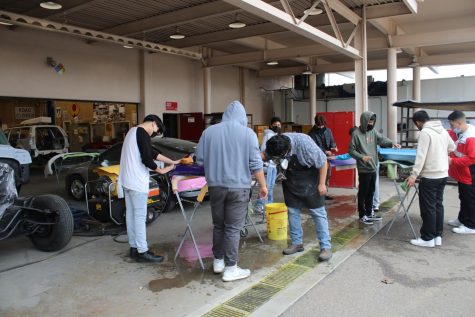
ROP (Regional Occupational Program) classes offer free hands-on training to develop marketable skills and to encourage good work attitudes. Students can earn elective credits by taking an ROP class during the regular school day and/or after school hours.
Students who take ROP classes attain entry-level job skills, prepare for well-paying careers, and prepare for advanced career training.
Available classes include Nursing, Clinical and Administrative Medical Assistant, Entertainment Park/Tourism Careers, and Auto Body Repair.
Reporters Laila Diaz, Elany Zavala and Addam Sapien spoke with students who took ROP classes off-campus.
Senior Isabella Bueno worked as an assistant in a nursing home. She said she learned how to care for and help the elderly through simple tasks like eating and cleaning.
“We worked with people who were there for short recoveries, usually the elderly. We would usually shadow the professional assistants, but we also worked along with them,” she said. “It’s a really nice program and you learn a lot, you see a lot, so you get to experience everything.”
Senior Karen Gonzales says her Hospitality and Business ROP class helped her study business and improve her resume. Although she took the class during distance learning, she was able to secure a job in the hospitality industry thanks to the class.
Junior Rosa Balderas recommends taking a medical ROP class because it helped her significantly towards becoming a professional ultrasound technician.
See Han Kim at the counselor’s office for more information or click here for a breakdown of available ROP courses.
Culinary
The Culinary and Hospitality Academy offers a four-year sequence of courses that provides training in the basic techniques of professional food preparation and service. The industry-driven curriculum includes but is not limited to: sanitation and safety, use of equipment, menu planning, quantity food production, event planning, catering, recipe costing, and customer service. Further information on Culinary can be found here (gingerbread) and here (food science).
Speech and Debate
The Fullerton Speech and Debate Program requires students to collaborate, think critically, listen critically, exude confidence, evaluate text, write arguments, and learn how to function in real-world settings. Students are offered the opportunity to compete locally and nationally, including participation in the National Speech and Debate Association. Through this honor society, students are provided extra resources, training, and scholarship opportunities. Further information on Speech and Debate can be found here (fine art), here (showcase) and here (LGBTQ).
BEAST
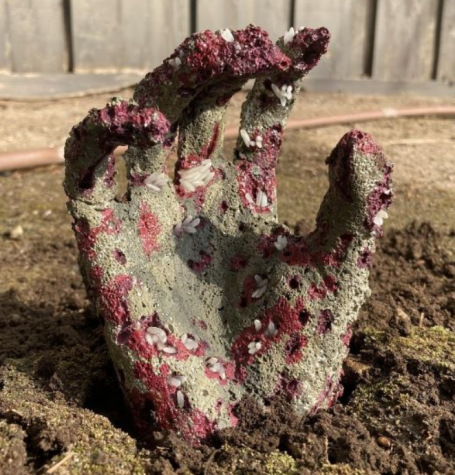
BEAST is the Biology, Engineering, Arts, Science and Technology Program at Fullerton Union High School and is part of the growing Science, Technology, Engineering, Arts & Mathematics or (STEAM) education movement.
A unique program, BEAST students imagine, design, and create “creature characters” employing the skills of the artist, the understanding of the biologist, and the methods of the engineer. Projects range from analyzing and sculpting anatomical models that show environmental adaptations, to building motorized machines that replicate the motion and locomotion of living creatures, to exploring the principles of mutation, disease and hybridization through prosthetic makeup and masks.
Partnered with both industry leaders and educational associates, BEAST creates a one-of–a-kind opportunity for students to put knowledge into action and use critical thinking, problem-solving skills, and their own imagination to build the products needed in the STEAM-based “practical effects” field and elsewhere.
Further information on the BEAST program can be found here (Knott’s) and here (award).
Agriculture
Fullerton’s Agriculture department was established in 1941 with only 14 members. Today, the department has grown to over 300 active FFA members and agriculture students. Students are able to use the 3.5 acre farm facility to enhance their classroom learning. Agriculture courses follow a “hands-on” approach to learning and offer a variety of experiences for students.
Further information on Agriculture can be found here (student feature) and here (meat process).
Theatre
The mission of FUHS Theatre is to provide meaningful arts opportunities that will incite desire, professionalism, ensemble ethic, communication, safety, and self‐confidence to teach students to be productive human beings in society and to develop the skills necessary for college and career readiness.
Fullerton Union High School is a destination for the Performing Arts in Fullerton and the surrounding community. The Theatre curriculum focuses on many important Educational Theatre principals including ensemble ethic, communication, and collaboration to prepare students for a future in the Arts or the opportunity to develop skills that they can use in all facets of life.
In addition to taking specialized coursework in theatre and technical theatre, students can participate in many other co-curricular and extra-curricular activities including: main stage productions; theatre competition teams; participation in theatre festivals at a regional, state and national level; master classes with industry professionals both on and off campus; tailored instruction in acting, directing, technical theatre and design; opportunities for college and university exposure and auditions. Further information on Theatre can be found here (Little Prince), here (elementary) and here (same room).
AVID
AVID (Advancement Via Individual Determination) is a college readiness system designed to increase the number of students who enroll in four-year colleges. AVID’s mission is to close the achievement gap by preparing all students for college readiness and success in a global society. Further information on the AVID program can be found here (student feature).
ASB
ASB (Associated Student Body) represents the interests and goals of the entire Fullerton Union High School student body. ASB seeks to make students feel connected to school and each other through organized activities including Orientation, Back to School Night, Spirit Weeks, Pep Rallies, Assemblies, Dances, and Grade-Level Competitions. Further information on ASB can be found here (9/11 video), here (sadies 1) and here (sadies 2).

